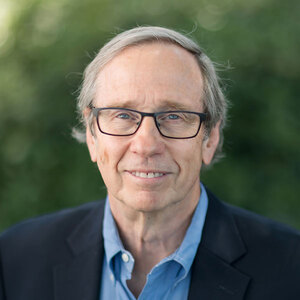
When we think of the important subject of prayer and worship, it is interesting to notice that the Christian faith affirms that sacred spaces and places have more to do with the when of one’s existence than with where. Let me explain.
As I write this piece, I happen to be in England, where there are many “sacred places”: from the stone circles of ancient druids and other worshipping, superstitious people to the grandeur of the Christian cathedrals of Westminster, Canterbury and York Minster. Sacred spaces and places have always been important to people, for we are by nature a worshiping people, whether in truth or falsehood. Only the ignorance of the contemporary skeptical mind is so foolish to think there are no holy spaces. As Christians, we do not shirk from sacred places, for God has given us bodies by which to worship and pray. He has blessed certain places where he has acted in space and time, where we have set down memorials to his work and his people. Recall the many sacred places in the Old Testament where saints remembered the work of God and his people (Gen. 35:7, 14, 20). We are not pure spirits who have no place to pray. There is a where-ness to Christian spirituality. We pray in space and time, in this room or that building or that park. And since God has blessed creation, we too can bless our places of prayer and worship with external reminders of beauty, goodness, meaning and significance.
However, we are not just body but are also a spirit. And as spirit, we are not bound by a place or a space to approach God. The believer can approach him at all places and spaces, not due to any special spiritual ability on our part but because God has revealed himself to us by sending his Spirit into us by which we cry out in prayer, “Abba, Father” (Rom. 8:15–16). And the Spirit of God and my spirit are now one spirit in the Lord so that he indwells my very person — body and soul — making it his temple. Thus, wherever I am is a holy place to worship and pray (1 Cor. 6:17–20). This is precisely what Jesus and the New Covenant predicted.
It was Jesus himself who expanded our notion of worship beyond a place, beyond where it must take place. The superstitious pagans in ancient times have always been overly attached to spaces for worship.

Even the Hebrews came to regard the place and its where-ness as perhaps overly important to the reality of worship itself. Listen to the Samaritan woman: “Our fathers worshiped in this mountain, and you people say that in Jerusalem is the place where men ought to worship” (John 4:20). She raises this issue of where-ness as though this were a theological question of major significance. But Jesus cuts right through this conversation with a view to Pentecost and the coming of the Spirit as promised in the New Covenant: “Woman, believe Me, an hour is coming when neither in this mountain, nor in Jerusalem, shall you worship the Father. ... But an hour is coming, and now is, when the true worshipers shall worship the Father in spirit and truth; for such people the Father seeks to be His worshipers. God is spirit, and those who worship Him must worship in spirit and truth (John 2:21–24). In a few words, Jesus has transformed worship for all times: Worship of the true God is no longer bound by space or place but is whenever and wherever the people of God find themselves.
Because the Spirit indwells us, the best place to worship is here and the best time is now. In that sense, the when of prayer determines the where of prayer. Special times and sacred places of retreat for extended prayer and solitude are to be encouraged, for all relationships need these. Nevertheless, when is the best time to pray? Now. And, thus, there is no better place to pray than here.
My prayer life has changed over the past 17 years from particular times and special places to praying now. Right now. The when of my prayer life has become more important than where. Of course, I do not pray as I ought. Even Paul the Apostle freely admits his weakness in prayer: “the Spirit helps our weaknesses; for we do not know how to pray as we ought, but the Spirit Himself intercedes for us with groanings too deep for words” so that we might grow into the image of Christ (Rom. 8:26–29). He is always praying for us in the deep. And so, even if I fail to pray now, he does not. Nevertheless, every moment I am invited to pray, to share whatever is on my mind with God. Thus, every moment can be a transformation of self-talk to God-talk. The New Covenant has fundamentally transformed external sacred spaces into an inner-space in which we are invited to commune with the Living God — here and now. May the Spirit of God open us to this reality.
John Coe (’79, M.A. ’83) is the director of the Institute for Spiritual Formation and professor of spiritual theology and philosophy at Biola University. He holds a Ph.D. in philosophy from the University of California, Irvine.
 Biola University
Biola University
.jpg)

